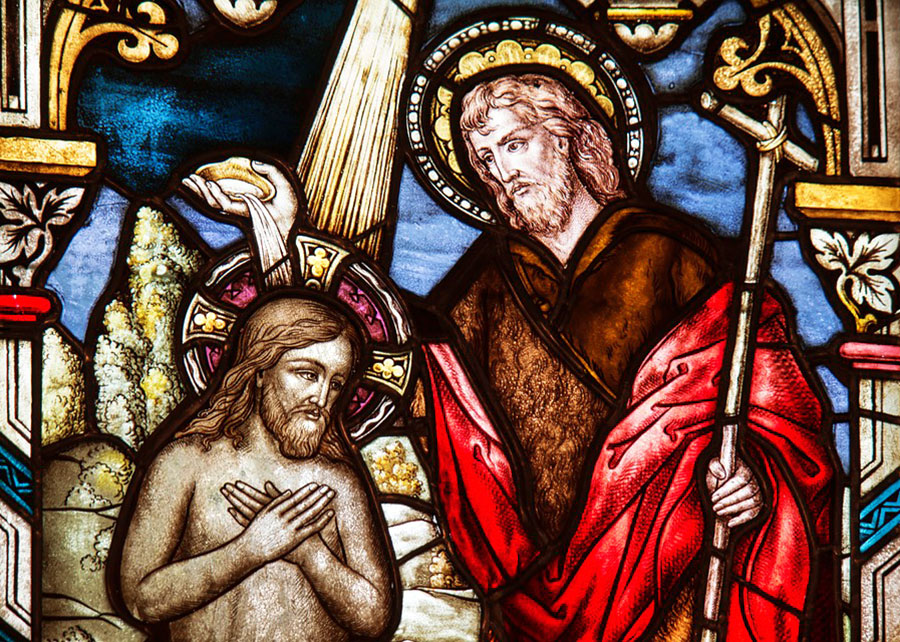Religion As Viewed From The Spirit World ~ Part III
 by Anthony Borgia
by Anthony Borgia
For many hundreds of earthly years the New Testament has been claimed to be the inspired word of God. Opinions differ upon this one point, but there is still greater diversity of opinion upon much that is contained in the gospels. So wide is the latter divergence that literally hundreds of different Christian religions and religious sects have sprung up all over the earth world, each professing to be a true religion, if not the ‘true’ religion.
Some individuals go still further and claim that absolute belief in the contents of the book is itself sufficient for the ‘salvation’ of the soul, and that without that belief the soul is lost, condemned for all eternity to remain not only without the gates of heaven, but at a very great distance from them.
One religious denomination in particular proclaims itself to be the sole depository of truth upon earth, with an infallible interpretation of the gospels. How, then, do we in the spirit world regard the New Testament? Surely, it might be said, you in the spirit world have the opportunity of ascertaining the truth upon all such matters, especially upon the various texts in the gospels over which so much controversy has arisen, or which are still obscure in their meaning.
Certainly we have the means in the spirit world of getting at the truth in such a case. But suppose we were to give the truth, should we not be charged with giving just another interpretation and so adding to the confusion that already exists?
Should we not also be suspected of trying to found yet another religion upon earth that already contains far, far too many? Finally, why should any interpretation that I might offer to my friends on earth be considered the right interpretation?
It is a risk that is worth taking. In spite, therefore, of what one Church emphatically teaches, namely, that private judgment in such matters is heartily to be condemned, I would ask my friends who have followed my writings thus far to view what I have to say in the light of spiritual truths.
I would ask them to cast from their minds, at least for the moment, but better still for all time, such doctrines and creeds as they already possess, and to come with me upon a pleasant journey whereon we will explore some parts and passages of the New Testament.
We will not essay any new interpretation. We will merely take some passages of the gospels and see how they compare with the truth as it exists in the spirit world.
‘What is this?’ I can hear someone declare. Are you suggesting that Jesus of Nazareth did not teach the ‘truth?’ Most emphatically I am not suggesting such a thing. He told the absolute truth, but it remained for those who humbly professed to be his followers in after years to do just the opposite.
What has been set down in the four gospels is but a tiny fraction of the great body of teachings that were originally given forth. They have been inaccurately set down; they were not—and are not—the inspired word of God.
They have been mistranslated, misinterpreted, suffered interpolations and distortions, and they have been tampered with until it seems more than remarkable if a vestige of the truth can remain.
From this chaos, there have arisen an immense variety of dogmas and ritualistic practices that have no bearing whatever upon the spiritual progression of a single soul. And in the very center of this distortion stands Jesus of Nazareth, who gave the truth in the first instance, and who, through the operation of that catalogue of accidents, which I have just enumerated as befalling the Scriptures, now finds himself elevated into the position of God Himself.
To Jesus, in virtue of his deified position, are attributed the most outrageously impossible functions and attributes. His life on earth is almost one of the major ‘mysteries’ of the Christian religion because he is God Himself, who has come down to earth to live there as man.
The whole doctrine of the incarnation is one of the most fantastic inventions of the theologians of past centuries on earth—to take just one instance from many of how the mind of man can build up strange mysteries concerning the spirit world where, in good truth, no mysteries exist.
The laws that govern the spirit world are not complex laws that none can understand. There are many things in spirit life, which we cannot understand yet, just as there are many things upon earth, which cannot yet be understood.
But just as you have great minds on earth who can—and will—eventually solve such mysteries, so in the spirit world are there still greater minds who can—and will—provide an answer to our riddles.
At the moment, our state of mental evolution has not sufficiently advanced for us to be capable of understanding were an explanation to be given to us. But with all such matters we can see plainly the reason for some law, or truth, or whatever it may be. We are not treated to a farrago of words that collectively possess not one grain of meaning or sense, only to be told that it is a ‘mystery,’ or something that under Divine Providence we are not meant to know.
When we come to discuss the New Testament, we shall find that a great deal of what it contains has no meaning whatever when viewed in the light of our knowledge of the spirit world and of spirit life in general. We are not here concerned with what may have been set down in the original documents, as to whether we are considering it is mistranslated. A reference to originals will get us no further forward.
In setting down these records, the writers of them simply filled in any hiatus that might have occurred in their work by thoughts and ideas entirely their own. Some of these interpolations—indeed—a great many of them claimed as the sayings of Jesus. None in the spirit world know positively whether any particular dictum—provided that it makes sense—can be of the authorship of Jesus because we know that he was himself under such supremely careful guardianship from the spirit world that no errors would have been permitted to him in the delivering of the spiritual teachings.
The untruth is not of Jesus, but of his chronicles and subsequent transcribers. It happens, then, that when we try to give some clear meaning to what obviously sounds preposterous as it stands, we find that the sense of the original has been so altered in many cases that words, in their ordinary, everyday use, have almost ceased to have any meaning. Theologians have become adept in twisting words beyond all recognition of their true import. With the adoption of such practices, there is no limit to the number of meanings or interpretations that can be accorded to any simple sentence of words.
An impediment would seem to arise from the belief that the Scriptures are the inspired word of God. Therefore, it follows that however much we should feel that a certain text is wrong as it stands if we take the words in their rational meaning, there must be a correct interpretation if one could only discover what it was. This the theologians have brazenly and presumptuously done. I say ‘presumptuously’ because in so many instances they profess to know and declaim the precise ‘will of God.’
What causes perhaps the widest departure from the truth is the work of interpolators that has been carried out through the whole length of the four gospels. When those of us who have some acquaintance with the gospels arrive in the spirit world, we can see so much that is in complete and total contradiction to so much that was rigorously upheld by us when we were incarnate. This revelation may be a shock to some of us. It is a shock, however, that we can soon overcome! A knowledge of spiritual truths and the experience of the life we live here in these realms are sufficient at once to demonstrate clearly what is a precise statement of incontrovertible fact appearing in the gospels and what is pure fiction.
The misadventures which the Scriptures have suffered at the hands of the recorders, transcribers and translators have given rise to the large company of theologians who have strenuously endeavored to make spiritual sense of what is utterly meaningless. Controversies have occurred where in some cases acute minds have perceived the truth, proclaimed it, have been branded as heretics by their brothers in religion, have been condemned, and finally have been ceremoniously deprived of their earthly lives. Such a vast structure of mystery and obscuration has been built around the Scriptures in the fantastic interpretation of them as to provide the earth world with scores of ritualistic practices and ceremonies as well as obscure creeds and dogmas, all of which, the earth is taught, are collectively or individually necessary for the ‘salvation’ of the soul.
Instead of making the spirit world and its laws, and the process of getting into it, a matter of plain, sensible fact, to be understood in the same sensible way in which you understand your ordinary functions on earth, the spiritual teachers of earth have circumscribed the whole subject with such enigmas and involutions that religion has become, as it were, a separate part of life on earth.
The very act of ‘dying’ is the operation of a natural law. By its operation, man casts off his physical body, which has served him for his life on earth. He then finds himself in the spirit world. It is the normal, natural outcome of his earthly life. It is inescapable for all persons without exception, of high degree or low. It was never intended, under the dispensation that has provided the whole scheme of life on the earth-plane and in the spirit world, that the spirit world should be regarded by the incarnate as some fearful and frightening unknown destination for which all on earth are bound and from which no one has ever returned, or ever will return, to recount what has befallen him after he has left the earth world.
The spirit world has been wrapped in a deadly silence therefore, a silence which must forever remain unbroken. It is small wonder that so many of the dwellers of earth are terrified at the prospect of leaving it at their dissolution. In the meantime, to try to alleviate this fear, the Churches give voice to inexplicable utterances exhorting their followers to have ‘faith,’ and to cast themselves upon the mercy of God. And the great book that should have been such a treasure of facts concerning life in both our worlds, yours and mine, has been so mishandled by those who have claim—its custodians—as to offer very little light upon matters so important to all people.
What we have just set down are one or two observations, which I thought it expedient to make before we undertake to consider some passages from the New Testament. To these remarks I would add that we pursue a direct course, so to speak, but rather consider such passages as deal with a particular feature of spirit life or with spirit truths in general.
Once again, I would say that we are not here concerned with what may or may not appear in the original documents or in others of an early date, but only what appears in the printed books of this present moment of your time. Whatever theologians may know of the original is of little or no concern to the ordinary man. He wants plain facts in such a case, facts that are readily accessible, and, moreover, facts that are stated in terms that he can easily understand, not in words which state one thing but which, by the tortuous ways of theologians, are made to signify exactly the opposite.
In the chapter in which is set down the famous Sermon on the Mount, we find the sermon opens with a series of statements, each prefixed by the word blessed, and which are known as the beatitudes. Let us together examine one of them: Blessed are they that mourn, for they shall be comforted. How? Wherein lies the blessing?
Incalculable millions of people on earth have undergone the crushing experience of bereavement. To those who have experienced it, it can be crushing. The loved one is gone; the voice that was so well known is silent, and seemingly silent forever. Nothing can fill the desolate blank that is caused by the departure for an unknown destination of that cherished soul. That is a doubtful blessing, to say the least, which requires such sorrow and sadness to call it down upon one. Or is it that the comfort is so sublime, so soothing to the troubled mind, a spiritual experience of such beauty, that it is well worth our while to lose some dear friend or relation merely to experience it? That would seem too nonsensical to be worthy of a moment’s serious thought.
Again we could ask: wherein lies the comfort? The comfort offered by ‘faith’ in some religious system, perhaps?
It is customary in some cases, where the mourners are of a simple turn of mind, for them to say that it is God’s will, and that He has taken their lost one. But yet they cannot understand why God should take him; for what purpose, especially if accident or illness has cut short the earthly life in its earlier years? So that the average person confronted with bereavement would like to perceive just where is the blessing in his mourning, and whence comes the comfort, for, he will tell you earnestly from the depths of his deep sorrow, he can perceive neither the blessing comfort—and it is comfort he so urgently needed—in his moment of desolation.
The theologian will find a great deal in those words, blessed are they that mourn, for they shall be comforted, but they will be mostly empty words for he cannot answer the questions put to him as to whence the blessing and the comfort.
I can speak from my own experience when upon earth. When I was in the presence of some soul distraught with bereavement, the words of comfort I could give were few and seemed hollow. Indeed, what was there, out of a great fund of theological knowledge, so called, that I could offer to a soul in such distress? What real fact could I present? That sufferer in sadness wanted to know so much that I was powerless to answer from the Church’s teachings. The best I could do on innumerable occasions was to try to strengthen the friend in his faith; to offer the hope that prayers, coupled with the powerful intercession of the Church, would be bound to avail, and that the departed soul would be ultimately released from the pains of purgatory—and so on, with a deal more upon the same empty barren lines.
Always was there a feeling of the silence of the tomb. But it was—and is—a silence that is imposed by people on earth who regard the very thought of death of the physical body as morbid. To say from the pulpit or the sanctuary blessed are they that mourn, for they shall be comforted to a congregation that includes just one mourner who is in dire need of comfort but cannot obtain it, is to give demonstration that there is something fundamentally wrong somewhere.
It has been suggested by a theologian of the Church that the person who is here blessed is he who mourns for his ‘sins.’ Could there ever be a greater travesty, a wilder distortion, a worse corruption of such a plain statement of fact as that the mourner shall be comforted?
Here at the very outset of one of the foremost books upon earth, in the very opening chapters, is the clue, one might almost say, to the whole work. What of death? It is nothing. But thousands upon thousands of people upon earth will at some time or another mourn the loss of their friends or family, and thus will the distress of sorrow be cast upon many who can find no reason, who can see no good purpose why such sorrow—and such crushing sorrow—as that of the mourner should ever come to pass.
Many an overwrought soul has asked ‘Why does God allow it?’ They have a poor estimation of what they have been taught to believe is Divine Providence. The providence in this case is hopelessly absent. Even if, as some last hope, they turn to the New Testament, there they will find words, which they fail to understand, or understanding their plain meaning, will wonder where they are to find the fulfillment of them. They read that they will be comforted, but merely reading the words and trusting to some elusive spiritual experience to relieve their sorrow is of little or no value in such case. The sorrow’s intensity will swamp all other emotions and serve but to aggravate the sorrow by the hopelessness of obtaining relief.
Now, lest my friends should say that I have exaggerated the matter, let me assure them that I have not done so. When I was on earth, there were many occasions; such as will occur with any minister of the Church of whatever denomination, when a sorrowing soul has come for spiritual help and guidance.
The whole body of teachings which Jesus gave in those far-off days was concerned with a two-fold theme: spiritual guidance for people on earth founded upon absolute facts of spirit life and spirit laws and some account of spirit laws and their operation with full details of the facts of spirit life.
What is to be read upon the latter subject in the New Testament is but the sorriest fraction of what was originally delivered to his listeners by that great teacher. The larger proportion of those facts were unrecorded. The remainder have been so abridged and distorted, as well as undergoing unauthentic interpolations, they have been so mistranslated and have had cast upon them the wildest and nonsensical ‘interpretations’ that the whole book must now be treated with the greatest caution as to what is exact spiritual truth and what is not. The very ‘miracles’ that were performed by Jesus are demonstrations of the use of psychic faculties under precise and undisputed superintendence of elevated souls from the spirit world.
Even these have been transmogrified into the acts of divine being, who was in fact God Himself, and to whom therefore, all things were possible, even to ‘raising the dead.’
The whole phrase of blessed are they that mourn, in its present form, is an isolated statement of fact. It is, in very truth, but the text of a whole sermon, as are the remaining ‘beatitudes.’ As it stands, it belongs nowhere. As a theme for a complete discourse, it becomes a title of supreme importance to every soul who is born upon earth, as was meant. The meaning is clear to us here in the spirit world, it should have been clear to us when we were on the earth-plane. It would have been clear to us had the full text been set down as it was originally delivered. Even if the bare substance of what was said had been recorded, a splendid result would have been achieved.
Orthodoxy, for hundreds of years, has been ignoring the true meaning of these words, fastening upon them grotesque interpretations to what is a simple statement of truth. Let the theologian search as far and as deeply as he will, he can find no means within the circumscribe orbit of his theology for demonstrating the truth of the assertion that comfort shall be given to the mourner. What discover among the Church’s creeds and dogmas that will bring that comfort? Faith, or the submission to the will of God? Will either of these afford the slightest comfort? But in place of vague and empty assurances, the truth of spirit laws and their operation will bring immense comfort, the comfort he most sought.
It was never intended that the two worlds, your and ours, should be treated as two worlds apart, never having at any time, communication with each other. Why should not our two worlds hold regular and natural converse with each other? That intercommunication does exist, has always existed, and, moreover, will always exist. It may have been—and is—carried on by the comparative few, that is true, but that is the loss to the majority.
This intercommunication is one of the true blessings conferred upon both worlds by the Great Mind that has the ordering of such things.
People speak freely and loosely of the will of God because loved ones have gone down into the grave (as they think), and are thenceforth silent. What of the sorrow of those they have left behind them on earth? It is the will of God, then, that such suffering should come upon them. What an infamous imputation it is to the Father of Heaven that He should deliberately plan matters in this universe in such a clumsy way that vast unhappiness should thus be caused throughout the earth!
Every soul born upon earth must pass through the portal of ‘death’ before he can take up permanent residence in the spirit world. But with his thus passing to the spirit world with the death of the physical body, the natural and usual circumstances are that others should be left behind to continue their earthly lives until the time comes for them also to pass into these lands. It was not intended that an impregnable barrier of silence should be erected between the people who have passed into the spirit world and the people who are still upon earth.
The means have always existed whereby a natural and normal and happy intercourse between the two worlds should forever be enjoyed by the inhabitants of both worlds. If people in their dullness and stupidity, or in their blindness and stubbornness, wish to cast aside the greatest blessings that a wise dispensation has for their comfort, they have no one but themselves to blame for their consequent sorrow. But so many of the minds of the earth world regard the very thought of direct communication with the two worlds as rubbish, not proven, unhealthy, morbid, and even plain madness—according to their great wisdom.
The orthodox Churches uphold them in any objection, which they may bring forward. So long as it is an objection it will be sustained. At the same time, they will uphold the New Testament, every word of it, even that the mourner shall be comforted, though they have not the faintest notion what the words mean, or understanding, in any way, what the words might mean. They cannot conceive how the comfort is to be afforded, and they are certainly not in any position to provide it.
When Jesus spoke those words, he was making a declaration of absolute truth, and he then proceeded to develop his theme upon the true facts of spiritual laws. He saw about him in those far away times the same such bereavement as can be witnessed at this very day of earthly time. Humanity has not changed in that respect. There was—and always will be—sorrow at the departure of a friend or relative for the spirit world just so long as human affections endure. Human affections have their rewards, they also have their sufferings, and none so poignant the transition of a loved one.
Jesus observed this natural state of things about him, His teaching upon this particular occasion, among many of a similar description, provided the one satisfactory answer to that particular problem of human suffering and sadness. He was not content with merely making the plain statement that the mourner should be comforted, but he told his listeners how the mourner could find his comfort. And the means so readily at hand were not ‘faith’ or submission to the will of God, but the plain facts of communication between the two worlds and how it could be accomplished.
Who was there better qualified to speak upon such a subject than was Jesus himself? No one, for he practiced exactly what he preached. His own psychic faculties had been developed during a long period of years under careful guidance from the spirit world. He was able to tell his hearers that death is not the overwhelming tragedy that the folk on earth have always thought it to be. The earth world was in full possession of innumerable blessings conferred upon it by the operation of natural laws. Those same laws are in existence and in operation today. But they are brought into force not by the exponents of Orthodoxy, as they should be, but by the comparative few who are outside the realms of orthodox beliefs.
The problems that confronted Jesus in presenting his theme in full upon the eternal truth that the mourner shall be comforted were problems, which have their counterpart in the earth world at this moment of time. His chief opponent was the Church of his day. The chief weapon in the ecclesiastical armory of all times and all denominations is the weapon of fear, grounded upon strange mysteries and a total and complete misconception of the character and nature of the Father of the universe. The very Scriptures themselves are made to yield textual confirmation of many of the inexplicable beliefs and religious theories upon which Orthodoxy places so much reliance.
The book that should be giving earthly religious teachers the vital truth concerning one’s life upon earth and the nature of things that one can expect after earthly life is ended, that book has been made a battleground for religious contentions, with the consequent founding of hundreds of different religious denominations in disagreement with one another, some of them claiming that Jesus was the very God Himself, others denying it. Had these same Scriptures not been grossly tampered with, the full truth would have been there for all to see. But with the truth to be seen by the full light of day, it would have pronounced the doom of Orthodoxy, as it was later to be known. Where would be the authority of any Church not founded and fashioned upon the truth, when the individual was able to provide for himself and through his own psychic powers all that was necessary for his spiritual life on earth, and for his safe conduct into the spirit world—unassisted by any obscure beliefs, by any elaborate religious performances, and entirely free from fear?
By the practice of this simple ‘religion’ of communication with the spirit world, not only would the individual be the recipient of spiritual teachings to the betterment of the position which he would occupy immediately upon his transition, but throughout his life upon earth he would be able to converse easily and constantly with such of his friends and relatives who had passed into spirit lands before him.
There would be no mourning, for the mourner would be truly comforted by the converse which he would be able to enjoy at all times with those who had ‘predeceased’ him. His friends in the spirit world would be able to tell him just how they were faring, just what had befallen them after the experience of ‘dying,’ even as I have been able to tell you, my good friend, of some of my experiences since I came to dwell in these lands.
Did you not regret my passing? I know that you did, but I also know with what joy you welcomed, in those early years, the news that I was well, and I was keenly sensitive of the still greater joy with which you welcomed my return to speak to you. Is there any other way in which this bright and happy state of affairs could have been accomplished? None whatever.
Jesus told those simple folk who sat before him exactly how the mourner could be comforted, and today we are putting into operation the self-same laws whose operation he expounded to them. Jesus had his own friends in the spirit world with whom he constantly spoke, even as is being done upon the earth-plane this day. He could compare the forms of orthodox religion that were about him with the grand truth, such as he knew it to be. And he set about bringing the ‘glad tidings’ before his own folk.
He used words and employed terms that his hearers would unfailingly understand. Occasionally, he veiled his meaning somewhat for reasons of policy, but in no case, turning the whole of one particular discourse, did he leave his audience entirely in doubt as to what was his precise meaning. He spoke as any normal person would speak who has knowledge of the facts, and he always had in mind the degree of mentality possessed by his hearers. They were simple people, unlettered and homely, who would be more familiar with homely things than with abstruse teachings upon matters, which were far and away beyond their limited comprehension.
The greatest and the simplest teachings of all have not been recorded in the gospels. The doctors of the Church have wrought havoc with what has been set down, and a wide variety of ‘interpretations’ has been given to a mutilated text. But in spite of them, the mourner will continue to be comforted in the only way possible.
Excerpt from Facts
See Part II here.
Posted in Life After Death, Life On The Other Side, The True Life of Jesuswith 2 comments.






Hello, who is Anthony Borgia?
Hi Christine, I will email you! LOL